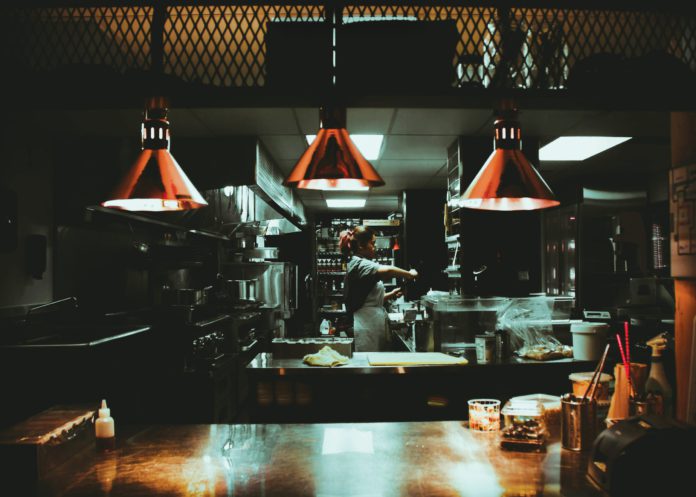Nearly every bite of food we eat in the U.S. has passed through the hands of an undocumented immigrant.
Along the entire food system, from farms and vineyards to meat processing plants and restaurant kitchens, undocumented immigrants feed our nation.
That is especially true here in the North Bay, where, according to chef Elijah Trujillo, immigrants are the “unsung heroes.”
Trujillo, the son of immigrants, has worked in some top Sonoma County restaurants and is the co-founder of Shokakko Food Truck.
“In Sonoma and Napa counties, we’re wine country, wine and agriculture. That’s our bread and butter; that’s what we tout to the world. And if you look at it, it’s all run off of immigrants,” Trujillo said. “If you were to take that labor force away, the whole thing would collapse.”
Undocumented immigrants make up around half of U.S. farm workers, 47% in 2022, according to the U.S. Department of Agriculture, and an estimated 75% in California.
At the other end of the food system, undocumented immigrants represent 9% of the hospitality workforce nationwide, according to the Pew Research Center, and up to 40% in cities like Los Angeles, according to the nonprofit One Fair Wage.
“If you’re around it every day, you stop seeing it,” Trujillo said of how easy it is to overlook the contributions of undocumented immigrants to the North Bay’s world class wineries and restaurants. “If you stay at a hotel, guess what? The kitchens are immigrants, the housekeeping’s immigrants, the people that built the darn buildings are immigrants.”
President Donald Trump has promised to deport all 11 million undocumented immigrants living in the U.S. and signed a slew of executive orders, including declaring a national emergency at the southern border, reinterpreting the 14th Amendment to end birthright citizenship and forcing asylum seekers to remain in Mexico.
Although the swift deportation of 11 million people is legally and logistically unlikely, a study by American Farm Bureau Federation estimates that if U.S. policy took the stance of enforcing deportations without offering a path to citizenship, essentially what Trump has proposed, then farm income would drop 15-29%.
These losses could lead to the closure of hundreds of farms and vineyards, with producers of fruit, vegetables, meat and dairy hit the hardest. We’d likely see food shortages and be forced to increase imports, and, according to the study, the price of groceries would likely rise 6%.
Trump himself couldn’t escape the hypocrisy when an immigration lawyer argued that Trump Winery in Virginia knowingly hired undocumented workers for the harvest season in 2020.
While a 2017 law makes California a sanctuary state by preventing law enforcement from cooperating with Immigration and Customs Enforcement (ICE), on Jan. 7 of this year, a different agency, Border Patrol, rounded up people who looked like farm workers in parking lots in a Kern County raid. This resulted in 78 arrests, showing that the state is not immune to immigration sweeps.
Rumors of more raids reached wine country. And Madeline Hernandez, regional directing attorney at Immigration Institute of the Bay Area, worked to dispel the false information and offer resources to the immigrant communities.
Sheriffs from Sonoma and Napa counties have stated they will comply with the state law and stay out of immigration matters. Other institutions, like the Napa Board of Supervisors and Napa Valley College, have reinforced their commitment to keeping the immigrant community safe from ICE raids. The Marin sheriff has not responded.
Since many immigrant households are of mixed legal status, Hernandez said the fear of family separation leads people to stop going to work and stop shopping, disrupting the economy. The fear also leads to decreased school attendance, and dissuades immigrants from seeking healthcare and reporting crimes.
There’s a myth that undocumented immigrants get paid cash and don’t contribute taxes, but the opposite is true. While there are strict punishments for businesses that get caught paying under the table, there’s plausible deniability in accepting a fake Social Security card and putting an undocumented immigrant on the payroll.
“If you’re a working individual and you’re on a payroll, you are paying taxes. You actually are getting Social Security and other things taken out of your paycheck monthly. And then when you retire, whenever you finish working, you’re not eligible to receive the benefits that you worked for,” Hernandez said. “It’s really sad for a lot of individuals who have worked for 40 plus years.”
In 2022, undocumented immigrants paid $8.5 billion in taxes in California alone, and $96.7 billion nationwide. According to the Institute on Taxation and Economic Policy, undocumented immigrants pay 8% of their income in taxes, compared to the top 1% of taxpayers who pay just 5.4%.
They pay into a system they don’t benefit from, work in the shadows of the glitzy industries that rely on them and live in constant fear of deportation.
“Regardless of what your views are, or how you feel about the issue, I think it is an issue that needs to be talked about,” Trujillo said. “Whether you want to get involved or not, it directly affects every aspect of your life.”
The contradiction between Trump’s aggressive deportations and the reality that our region’s pride and joy: wine and food, rely on the hard work of undocumented immigrants, is coming to a head.








